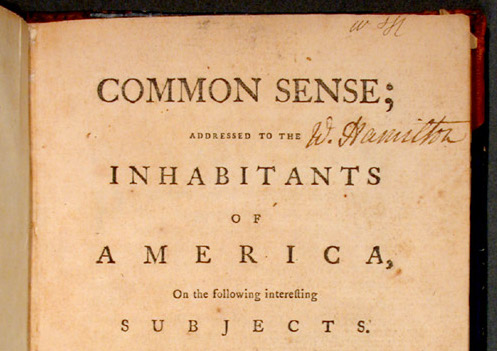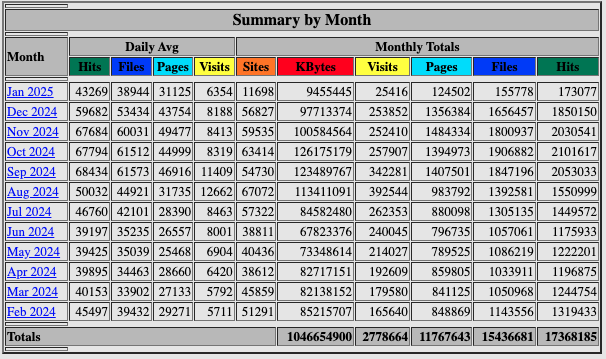By Robert Reich –
It’s seed time for the 2016 presidential elections, when candidates try to figure out what they stand for and will run on.
One thing seems reasonably clear. The Democratic nominee for President, whoever she may be, will campaign on reviving the American middle class.
As will the Republican nominee — although the Republican nominee’s solution will almost certainly be a warmed-over version of George W. Bush’s “opportunity society,†seeking to unleash the middle class’s entrepreneurial energies by reducing taxes and regulations.
That’s pretty much what we’ve heard from Republican hopefuls so far. As before, it will get us nowhere.
The Democratic nominee will just as surely call for easing the burdens on working parents through paid sick leave and paid family and medical leave, childcare, elder-care, a higher minimum wage, and perhaps also tax incentives for companies that share some of their profits with their employees.
All this is fine, but it won’t accomplish what’s really needed.
The big unknown is whether the Democratic nominee will also take on the moneyed interests – the large Wall Street banks, big corporations, and richest Americans – which have been responsible for the largest upward redistribution of income and wealth in modern American history.
Part of this upward redistribution has involved excessive risk-taking on Wall Street. Such excesses padded the nests of executives and traders but required a tax-payer funded bailout when the bubble burst in 2008. It also has caused millions of working Americans to lose their jobs, savings, and homes.
Since then, the Street has been back to many of its old tricks. Its lobbyists are also busily rolling back the Dodd-Frank Act intended to prevent another crash.
The Democratic candidate could condemn this, and go further — promising to resurrect the Glass-Steagall Act, once separating investment from commercial banking (until the Clinton administration joined with Republicans in repealing it in 1999).
The candidate could also call for busting up Wall Street’s biggest banks and thereafter limiting their size; imposing jail sentences on top executives who break the law; cracking down on insider trading; and, for good measure, enacting a small tax on all financial transactions in order to reduce speculation.
Another part of America’s upward redistribution has come in the form of “corporate welfare†– tax breaks and subsidies benefiting particular companies and industries (oil and gas, hedge-fund and private-equity, pharmaceuticals, big agriculture) for no other reason than they have the political clout to get them.
It’s also come in the guise of patents and trademarks that extend far beyond what’s necessary for adequate returns on corporate investment — resulting, for example, in drug prices that are higher in America than any other advanced nation.
It’s taken the form of monopoly power, generating outsize profits for certain companies (Monsanto, Pfizer, Comcast, for example) along with high prices for consumers.
And it’s come in the form of trade agreements that have greased the way for outsourcing American jobs abroad — thereby exerting downward pressure on American wages.
Not surprisingly, corporate profits now account for a largest percent of the total economy than they have in more than eight decades; and wages, the smallest percent in more than six.
The candidate could demand an end to corporate welfare and excessive intellectual property protection, along with tougher antitrust enforcement against giant firms with unwarranted market power.
And an end to trade agreements that take a big toll on wages of working-class Americans.
The candidate could also propose true tax reform: higher corporate taxes, in order to finance investments in education and infrastructure; ending all deductions of executive pay in excess of $1 million; and cracking down on corporations that shift profits to countries with lower taxes.
She (or he) could likewise demand higher taxes on America’s billionaires and multimillionaires – who have never been as wealthy, or taken home as high a percent of the nation’s total income and wealth — in order, for example, to finance an expanded Earned Income Tax Credit (a wage subsidy for low-income workers).
Not the least, taking on the moneyed interests would necessitate limiting their future political power. Here, the candidate could promise to appoint Supreme Court justices committed to reversing Citizens United, push for public financing of elections, and demand full disclosure of all private sources of campaign funding.
But will she (or he) do any of this? Taking on the moneyed interests is risky, especially when those interests have more economic and political power than at any time since the first Gilded Age. These interests are, after all, the main sources of campaign funding.
But a failure to take them on prevents any real change in the prospects of the bottom 90 percent of Americans.
It also robs the Democratic candidate of a potential public mandate to change the prevailing allocation of economic and political power — no less dramatically than it was changed by Teddy Roosevelt and Woodrow Wilson a century ago, marking the end of that Gilded Age.
And a failure to take on the moneyed interests sacrifices the potential enthusiasm of millions of voters – Democrats and Republicans alike – who know the game is rigged, and who yearn for a leader with the strength and courage to un-rig it, and thereby give them and their children a fair chance.
Robert Reich is Chancellor’s Professor of Public Policy at the University of California at Berkeley and Senior Fellow at the Blum Center for Developing Economies. He was Secretary of Labor in the Clinton administration. Republished here under a Creative Commons License from RobertReich.org.
Before you continue, I’d like to ask if you could support our independent journalism as we head into one of the most critical news periods of our time in 2024.
The New American Journal is deeply dedicated to uncovering the escalating threats to our democracy and holding those in power accountable. With a turbulent presidential race and the possibility of an even more extreme Trump presidency on the horizon, the need for independent, credible journalism that emphasizes the importance of the upcoming election for our nation and planet has never been greater.
However, a small group of billionaire owners control a significant portion of the information that reaches the public. We are different. We don’t have a billionaire owner or shareholders. Our journalism is created to serve the public interest, not to generate profit. Unlike much of the U.S. media, which often falls into the trap of false equivalence in the name of neutrality, we strive to highlight the lies of powerful individuals and institutions, showing how misinformation and demagoguery can harm democracy.
Our journalists provide context, investigate, and bring to light the critical stories of our time, from election integrity threats to the worsening climate crisis and complex international conflicts. As a news organization with a strong voice, we offer a unique, outsider perspective that is often missing in American media.
Thanks to our unique reader-supported model, you can access the New American journal without encountering a paywall. This is possible because of readers like you. Your support keeps us independent, free from external influences, and accessible to everyone, regardless of their ability to pay for news.
Please help if you can.
American journalists need your help more than ever as forces amass against the free press and democracy itself. We must not let the crypto-fascists and the AI bots take over.
See the latest GoFundMe campaign here.
Don't forget to listen to the new song and video.
Just because we are not featured on cable TV news talk shows, or TikTok videos, does not mean we are not getting out there in search engines and social media sites. We consistently get over a million hits a month.
Click to Advertise Here















